Michael Cox: The Stats Zone analysis that proves Jurgen Klopp’s influence at Liverpool
Gegenpressing was the tired word everyone was using upon the German’s arrival – but with good reason…
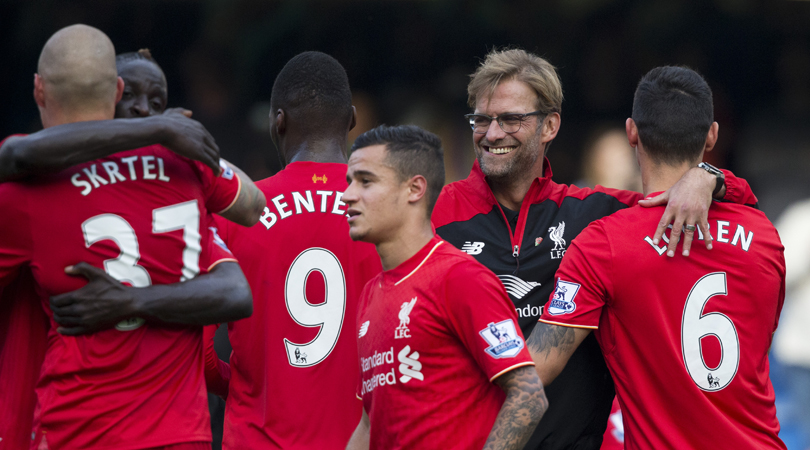
The best features, fun and footballing quizzes, straight to your inbox every week.
You are now subscribed
Your newsletter sign-up was successful
Want to add more newsletters?

Five times a week
FourFourTwo Daily
Fantastic football content straight to your inbox! From the latest transfer news, quizzes, videos, features and interviews with the biggest names in the game, plus lots more.

Once a week
...And it’s LIVE!
Sign up to our FREE live football newsletter, tracking all of the biggest games available to watch on the device of your choice. Never miss a kick-off!
Join the club
Get full access to premium articles, exclusive features and a growing list of member rewards.
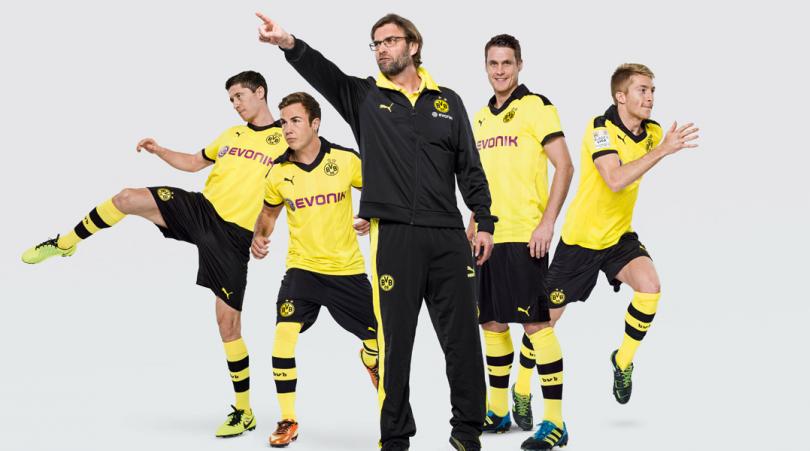
After five games in charge it’s now reasonable to start assessing precisely what Jurgen Klopp’s doing with Liverpool, and how effective his methods have been. Besides, considering that fifth match was an impressive 3-1 victory at champions Chelsea on Saturday afternoon, it’s clear the former Borussia Dortmund boss is doing something right.
The word most frequently used to summarise Klopp’s philosophy was a new one – gegenpressing. Previously barely used within English football, it became something of a buzzword overnight, and refers to Klopp’s emphasis upon regaining possession immediately after it’s been lost. It’s not quite the same as simple pressing, which refers to closing down high up the pitch all the time – when the opposition are playing out from goal-kicks, for example. It refers to something much more specific.
“Gegenpressing is the best playmaker there is,” Klopp once told FourFourTwo. “The best moment to win the ball is immediately after your team just lost it. The opponent is still looking for orientation where to pass the ball.” It means Klopp’s side don’t revert to a deep defensive position, and instead win the ball quickly, usually in advanced positions.
Proof in the pressing
One incident in Saturday’s 3-1 victory at Stamford Bridge summarised the approach perfectly. On 20 minutes, Philippe Coutinho miscontrolled the ball on the edge of the Chelsea penalty area, but then as Chelsea looked to play the ball forward, Alberto Moreno steamed forward to regain possession immediately. After a brief interchange just outside the box, Nathaniel Clyne dragged a shot wide. It wasn’t spectacular – it didn’t even force Asmir Begovic into a save – but it was gegenpressing epitomised.
Three types of statistic from Liverpool’s performance shows the impact of this approach, especially when compared with Brendan Rodgers’ final game, a 1-1 draw at Everton.
Three types of statistic from Liverpool’s performance shows the impact of this approach, especially when compared with Brendan Rodgers’ final game
First, the tackling numbers. The figures themselves are almost identical – on Saturday, Liverpool won 28 of 37 tackles, whereas in Rodgers’ final game it was 27 of 39. Based upon these stats alone, there is minimal difference.
The best features, fun and footballing quizzes, straight to your inbox every week.
The crucial factor, though, is the positions of these tackles. Look at the difference in positioning – there were 15 tackles in the opposition half at the weekend, compared to just six under Rodgers. There were a few around the opposition box too, whereas at Goodison Park, Liverpool didn’t even attempt this.
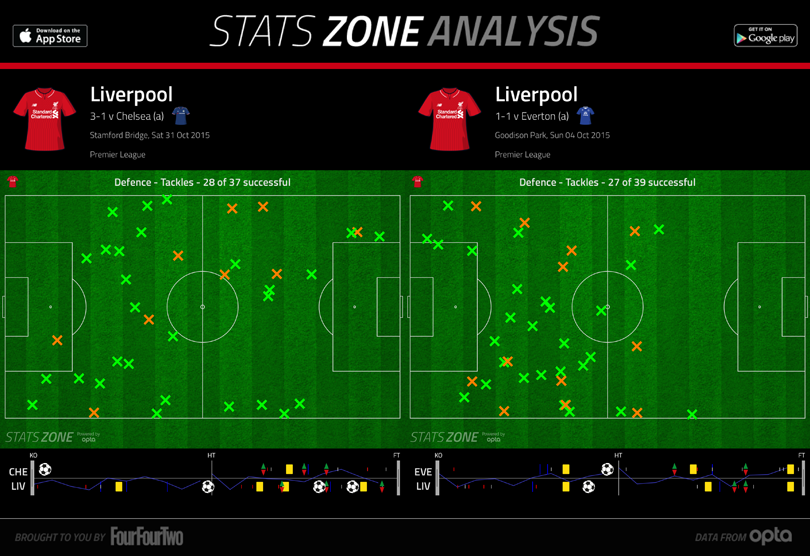
It’s exactly the same story for interceptions. Nine compared to eight is completely meaningless, but the positioning is much more telling – five in the opposition half, compared to two in the opposition half. Just one on the edge of Liverpool’s box, compared to five. The intercepting is clearly much more proactive.
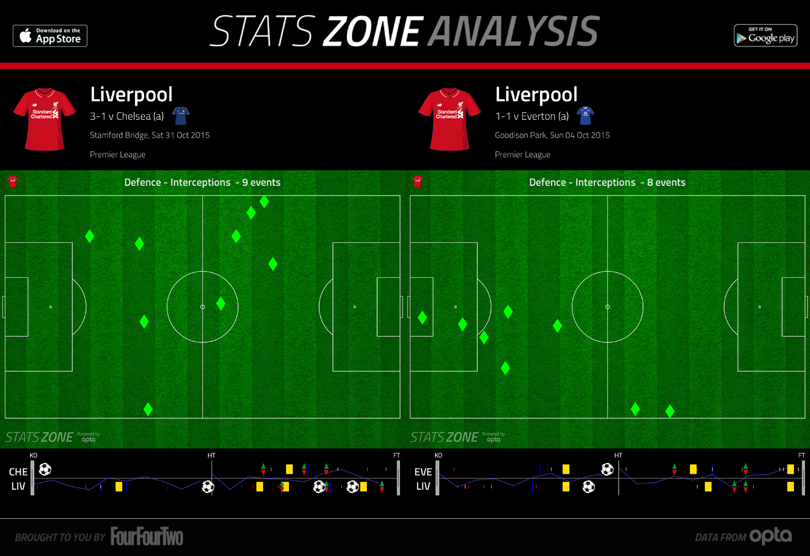
And, finally, there’s the ball recoveries. According to Opta, this is where a player wins back the ball when it has gone loose or where the ball has been played directly to him by an opponent – so it’s not actively an interception or a tackle but involves regaining possession from the opposition.
Again, the raw stats are unchanged: 56 at the weekend, 56 in Rodgers’ final game. But whereas under Rodgers there were only five in the opposition half, and one in the final third, that has risen to 14 in the opposition half, and eight in the final third. The difference is quite something.
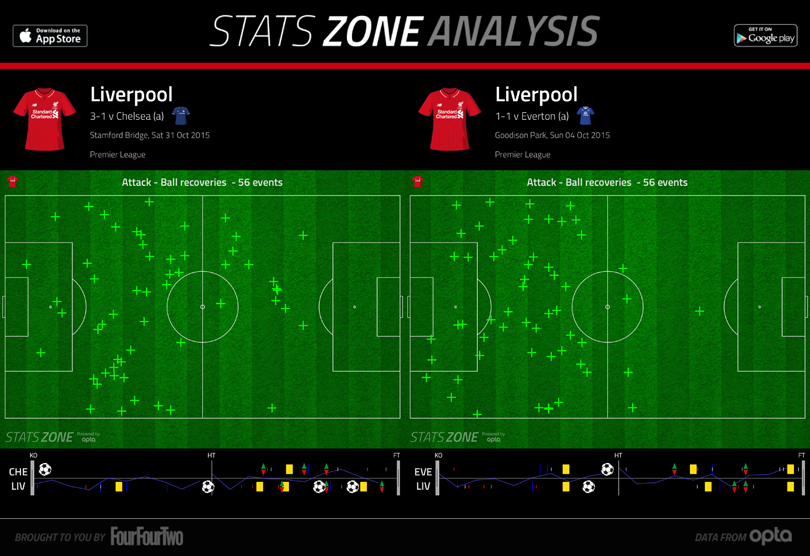
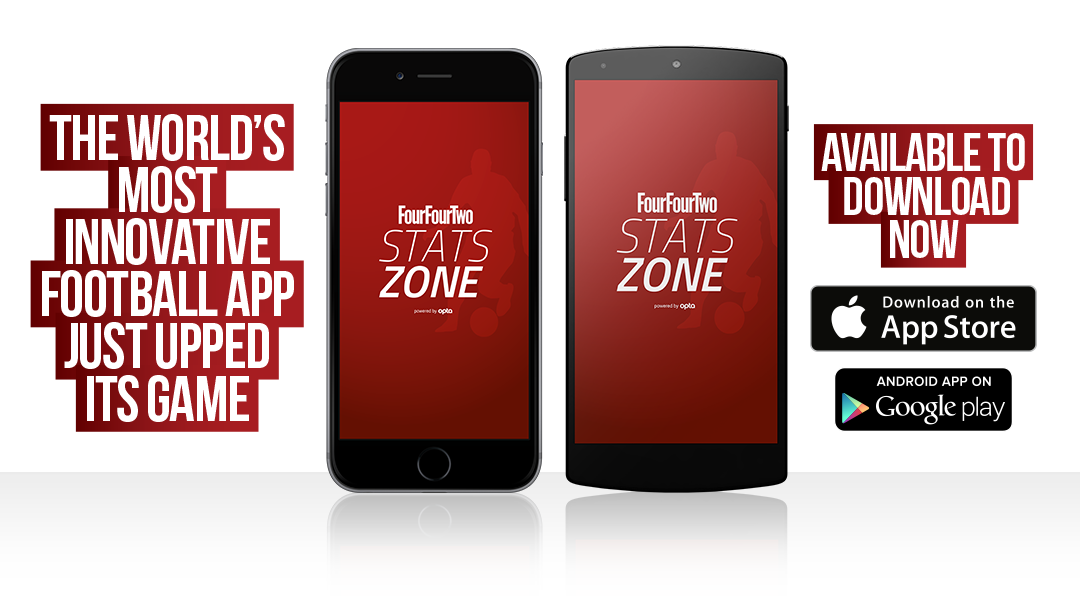
Clearly, Liverpool need to do more when they’ve regained possession – they struggled to create a clear-cut chance against Chelsea, and won’t be able to depend on Coutinho magic and a deflection every week. But the organisation without the ball is already very impressive, and Klopp will be very satisfied with his players’ efforts thus far.
More features every day on FFT.com • Analysis
STATS ZONE Free on iOS • Free on Android
 Join The Club
Join The Club










